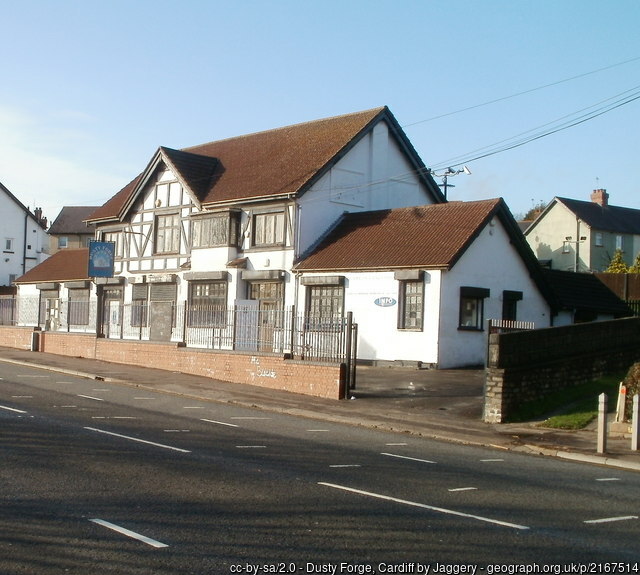Martin Kitchener and Panayiota Georgiou reflect on the lessons learnt from the development of the Ely and Caerau Community Plan.
Co-production is the process whereby professionals (e.g. workers in government and community organisations) collaborate with citizens to enhance communities and public services. This contrasts with public consultations whereby professionals seek the views of citizens about plans that are proposed by professionals. Although co-production has been talked about for a long time, little is known about the ‘craft of co-production’, the skills that professionals require to co-produce effectively with citizens.
In response to civil unrest following the tragic deaths of two young men in May 2023, Welsh Government, Cardiff Council, and the South Wales Police and Crime Commissioner’s Office sponsored a project to create a community plan involving professionals working ‘in genuine partnership with the people of Ely and Caerau’. Researchers from Cardiff University studied the creation of the community plan to identify lessons about the craft of co-production that might be useful for future initiatives in other communities.
Between August 2023 and May 2024, the development of the community plan was led by a local community organisation, Action for Caerau and Ely (ACE), and it involved a listening exercise, which heard from 1,234 people in open events, groups, surveys, and conversations and gathered almost 4,000 comments across 47 engagements. The key issues raised were grouped into six broad themes that included: community safety and safeguarding, children and young people, and spaces and the environment.
In spring 2024, ACE and Cardiff Council brought together 96 local residents and 52 public and third sector partners through 7 community workshops to dig deeper into the six themes. In these sessions, professionals (including educators, youth workers, police officers, GPs, headteachers, and early years workers) reviewed what they had heard, explored ideas, and worked with community members to jointly design actions for change.
In the late spring of 2024, ACE and Cardiff Council professionals, in collaboration with a wide range of partners named in the actions, combined information from the listening exercise and workshops into a community plan. From observing this process, six key skills stood out to us as essential to the craft of co-production.
Building and maintaining trust
Building and maintaining trust is a basic requirement for co-production. This can be difficult to achieve, even at the best of times, and especially when a community’s trust in professionals is low. Participants in this study reported that, following the tragic events of May 2022, their trust in professionals had fallen from levels that were not high to start with. Unsurprisingly, expressions of a lack of faith in the South Wales police force tended to dominate early discussions in various shapes. Participants also raised concerns about Cardiff council which was perceived to ‘only come here to close things down’.
Building and maintaining trust is a basic requirement for co-production. This can be difficult to achieve, even at the best of times, and especially when a community’s trust in professionals is low.
To build trust, first, the planning process was led by a local organisation (ACE) that was both generally (albeit not universally) respected in the area, and had a long record of supporting communities in Ely and Caerau. ACE’s Engagement Team members drew on their organisation’s decade-long experience of local community work, using a wide range of methods to clearly explain the planning process to the community through emails, newsletters, face-to-face conversations, and posts on social media platforms. Drawing on ACE’s network and existing relationships with the community, Engagement Team members then visited 38 community engagement opportunities within Caerau and Ely, during which citizens’ views were collected through various methods including surveys, interviews, workshops, and focus groups, in locations and at times suited to them. As one professional emphasised, ACE’s approach was centred around ‘going to where people and existing groups are; whether it is a youth club, a school, or a summer event.’
Second, the fact that one member of ACE’s engagement team being a local young person strongly helped build trust. Community members reported that this ‘local boy’ helped them to feel comfortable because he was ‘one of our own’ and could be trusted to communicate their views accurately.
Setting boundaries
All co-production processes are constrained by limits to resources such as time and money. This means that a very important skill for professionals is to manage citizens’ expectations by effectively communicating the boundaries of the project and what can realistically be achieved. Whilst effective management of expectations around co-production can help to maintain trust in the process, a failure to manage expectations can act as a significant barrier to success.
Innovative. Informed. Independent.
Your support can help us make Wales better.
Because the community plan project was set to run for only 10 months, professionals had to communicate the scope of the project effectively. As one professional explained, their focus was to ‘keep people informed.. without promising anything before signing off the plan’. This message was delivered consistently as professionals began engagement meetings by informing the community about the scope of the process, sharing what they had done up to that point, and what they plan to do next. Similarly, ACE consistently communicated about the importance of having a realistic plan to effect change. As one explained, ‘if nothing happens, it would be detrimental to the trust of the community so there is a lot riding on this. That is why it is important to be clear and open from the beginning regarding what this process can achieve and what not”.’
Managing difficult conversations
During the creation of the community plan, we observed many occasions where professionals were required to manage difficult conversations to avoid escalation to conflict. The approach role-modelled by the ACE engagement team leader involved acknowledging the difference in opinion, noting that both views were legitimate, and attempting to find consensus.
An example of this process occurred when community members were invited to discuss the membership of the project’s steering group. Originally, it had been decided not to include a police representative. While some community members agreed with this decision, others felt the police should be included. The meeting chair convened a full discussion of views on this matter and one participant suggested that the deciding factor should be which option would lead to the strongest plan. From this basis, it was agreed to include a police representative in subsequent meetings.
During an engagement workshop on a contentious issue, tensions escalated among participants. This involved some participants standing up and shouting at each other. In this case, no attempt was made to recognise and reconcile the different views. In reflecting on this process, ACE professionals decided that the next workshop on this issue should begin by introducing participants to each other and mixing people with differing perspectives on different tables for discussions. This approach to managing difficult conversations encouraged participants to listen to each other, acknowledge different perceptions, and ultimately build a consensus on the issue.
Demonstrating Empathy
To help break down barriers between professionals and community members during co-production, it is important for the former group to display empathy towards the latter. This study identified two ways that professionals demonstrated empathy during the planning process. First, professionals engaged in ‘active listening’. This means being attentive to the speaker and responding to what’s being said. This was evident in the engagement meetings where professionals responded to citizens by repeating back their points to make sure they understood them, and by thanking them for their helpful contributions.
The second way that professionals demonstrated empathy was by showing a clear appreciation of the local context. For example, during an engagement workshop with local parents, professionals emphasised that they too are community residents, living in Cardiff, having children and so ‘care about the same issues as you’ . From observing the co-production training that ACE provided to its own staff and professionals from the local council (called the ‘ACE Way’), we noticed a focus on sharing information about the socio-economic history of the community, especially given the historical stigma that is attached to the community.
Because co-production goes beyond consultation to include citizens in decision-making, professionals need skills to empower citizens to think about and provoke change.
In one example that we saw during an engagement meeting, the professional convener emphasised the importance of publishing the plan’s positive proposals before the anniversary of the tragic incident. The aim was to help mitigate the likelihood of the media reinforcing a historical source of stigma for the area by re-showing negative images of the community. Unfortunately, this script played out when BBC television coverage of the plan’s launch showed archival footage of social unrest. Because members of the community felt that it was not necessary or helpful to revisit issues from 1979 to discuss the current plan, tensions were raised in the area, and it created challenges to ACE’s relationships of trust with the community.
Empowering Community Through an Asset-Based Approach
Because co-production goes beyond consultation to include citizens in decision-making, professionals need skills to empower citizens to think about and provoke change. This often requires equipping citizens with both material resources and confidence. During the production of the community plan, the approach taken to citizen empowerment followed ACE’s model of asset-based development. This promotes a focus on identifying the strengths and assets of a community and using them to effectively promote change.
We observed the asset-based approach to empowerment throughout the development of the plan. This involved introducing the theory of asset-based development and presenting illustrative examples of how previous participants had experienced empowerment. From the outset of the planning process, all engagement activity began by asking three questions: what does the community have? What does it need? What does it want to change? As a professional co-ordinating a workshop explained to us, this approach is ‘all about empowering the community, not going in feeling sorry for the situation and only talking about problems and what is wrong, but also what is right.’ Community participants reported to us that this approach led them to feel that they had something to contribute to the process, beyond ‘simply participating’.
Capturing and Presenting Community Voices
Building on ACE’s long experience of community-based work, the development of the community plan recognised the importance of recognising the contributions of community members to co-production. This ensured that residents who participated in the 2-hour workshops were provided with refreshments, and a £30 Tesco voucher as a ‘thank you’ for their contribution.
The development of the Caerau and Ely Development plan shows that co-production requires skills in gathering, analysing, and presenting information about community views. During the production of the community plan, professionals had to gather citizens’ voices, identify core themes through an analysis tool called Taguette, and communicate their findings.
The ACE professional who coordinated this detailed work was very clear about the need to present the themes ‘in a simple way in order to be accessible to the public and easy to read and understand’. To address this goal, information was presented using a variety of forms including infographics such as: graphs, bullet points, tables, and ‘speech bubbles’ containing quotes from community members.
Given the complexity and range of the skills involved with the craft of co-production, it seems unlikely that any individual could perform them all, and the craft of co-production should likely be seen as a collective endeavour.
Community professionals often referred to the professional in charge of coordinating this work as ‘a data whizz’ who could both: (a) make complex information understandable to diverse audiences, and (b) explain what they were doing in a way that could be understood by non-experts. Those research skills were seen as vital to getting the information needed from interactions with the community and using them as the basis for the plan.
Lessons on the Craft of Co-Production
The main output of this co-production process is a community plan comprising 40 actions, all of which have the support and commitment from local public services, voluntary sector organisations and residents themselves, to deliver. It is presented as ‘a practical and deliverable set of commitments, agreed collaboratively, and with a ‘can do’ spirit’. On 14th May 2024, Welsh Government and Cardiff Council confirmed their commitment to see the community plan delivered for the benefit of all residents, offering their full support.
We certainly do not claim that the skills outlined here are the only ones involved in the craft of co-production. These six were, however, very important in the process that we observed.
Given the complexity and range of the skills involved with the craft of co-production, it seems unlikely that any individual could perform them all, and the craft of co-production should likely be seen as a collective endeavour. In our study, we found that different professionals played a leading role in performing certain skills. As we explained, the ‘data whizz’ performed much of the research work associated with the skill of ‘Capturing and Presenting Community Voices’. The ‘local boy’ played a key role in ‘Building and Maintaining Trust’, and ‘Displaying Empathy’.
Robust debate and agenda-setting research.
Support Wales’ leading independent think tank.
The co-ordination of co-production skills was conducted by the ACE Community Engagement Coordinator who was also prominent in performing the skills of ‘Setting Boundaries’ and ‘Managing Difficult Conversations’. This leadership role may be seen as similar to that of a ‘Master’ craftsperson who oversees a workshop of apprentices. Any desire to replicate the use of co-production beyond the case described here will need to give serious attention to the identification and training of both master and apprentice co-production professionals. This study suggests that the ACE Way programme may provide a useful starting point.
By concentrating on the human skills of co-production, this study did not explore the costs associated with the development of the Plan. We did notice, however, that in addition to the contract awarded to ACE, the development of the community plan involved significant contributions, of various types, from stakeholders including: community members, governance boards, and council professionals. Without an account of these elements, it is not possible to assess the cost of this process, or to provide a basis for estimating the cost of future exercises. However, this study has identified and illustrated six skills that helped professions to co-produce the plan effectively with the public. With community participants having reported high levels of satisfaction with the process, the co-production skills identified here may provide a basis for designing future attempts to empower communities through co-production.
All articles published on the welsh agenda are subject to IWA’s disclaimer. If you want to support our work tackling Wales’ key challenges, consider becoming a member.





